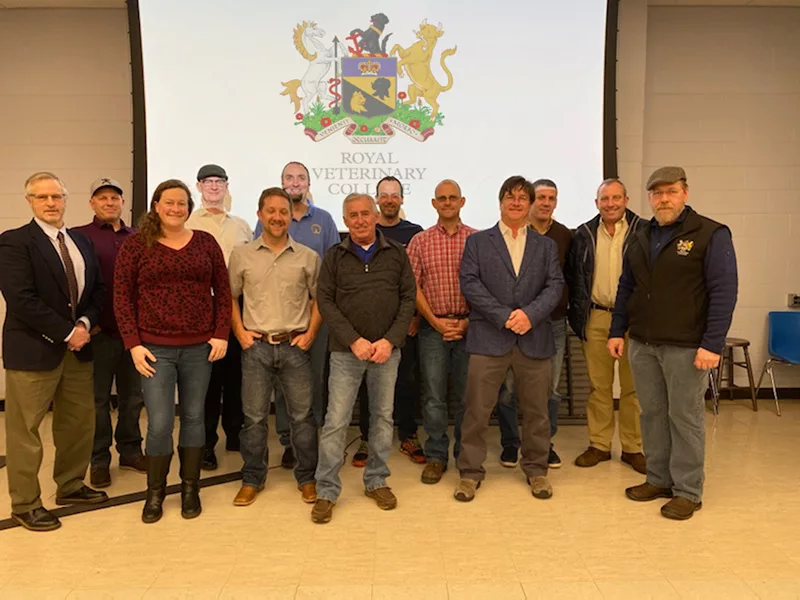The 2020 U.S. graduates of the Royal Vetarinary College’s graduate diploma in Equine Locomotor Research (Grad Dip ELR) completed the final course weekend at University of Pennsylvania New Bolton Center in early March of this year. Students presented the results of their thesis related work to the teaching staff, as well as virtually to fellow Grad Dip ELR students past and present.
“It was a true pleasure seeing the breadth and depth of the projects that the 2020 graduates of the RVC's graduate diploma in equine locomotor research have undertaken as part of their course work,” says Dr. Thilo Pfau, associate professor in bioengineering and course director. “The projects cover a variety of aspects from laboratory work with samples taken from hoof walls to assessments of different aspects of locomotor patterns in response to interventions to trimming. shoeing and on different surfaces. The course team is looking forward to the publication of the results in the peer reviewed literature, which we are very keen to support.”
The RVC launched the Grad Dip ELR in 2017. It is the first course of its kind offering professional farriers in both the U.S. and the U.K. the chance to gain the necessary skillset to produce original research and increase the evidence base behind farriery.
“I am so proud of all of the farriers in the ELR-US course,” says Pat Reilly, a student in the program and chief of farriery services at University of Pennsylvania School of Veterinary Medicine. “We have all learned so much and I think we have produced some fantastic research projects. Thank you to everyone at the RVC for your individual and collective efforts in making this course available to farriers in the United States.”
The Grad Dip ELR is a UK Higher Education Level 6 course, taken over a minimum of 2 and a maximum of 5 years. It is divided into two distinct sections, contemporary study skills and applied equine locomotion. It is being delivered using a variety of methods including face-to-face learning sessions on weekends, webinars and podcasts to facilitate participation of the busy practitioner. Admission is open to all farriers who can demonstrate that they have farriery training, practical experience with advanced footcare and can provide evidence of reflective practice.
“Many thanks to the RVC team of professors for leading us on this journey,” says Darren Owen, a student in the program and a Scottsville, Va., farrier. “It was an incredible learning experience. Congratulations to all my fellow cohort and a special thank you and congratulations to Pat Reilly for making all of us feel so welcome and his academic achievement. Hope to see everyone again sometime soon.”
The program recently achieved a milestone with its first study being published in a peer-reviewed journal. The paper, which is titled “The Effect on Tungsten Road Nails on Locomotor Biomechanics in Horses Moving on Tarmac Surface,” examines how road nails effect the horses’ movement symmetry. It was researched and authored by course graduates Lee Collins and Peter Day, who worked alongside RVC academics. The project is the culmination of their work in the equine locomotor research course, which offers professional farriers the opportunity to develop the skill set to produce original research and increase evidence-based farriery. It was published in The Journal of Equine Veterinary Science.
“It is very exciting to see our first U.S. graduates and to know that the RVC is supporting the development of farriery expertise on both sides of the Atlantic,” Pfau says. “I am very honored to be allowed to lead this endeavor. We are now seeing this course contribute to the scientific evidence base through farrier-led publications from our graduates in peer reviewed scientific journals. This is crucial for improving communications in veterinary-farrier teams aiming to improve the welfare of the horse.”
For more information about the Grad Dip ELR, please visit:







